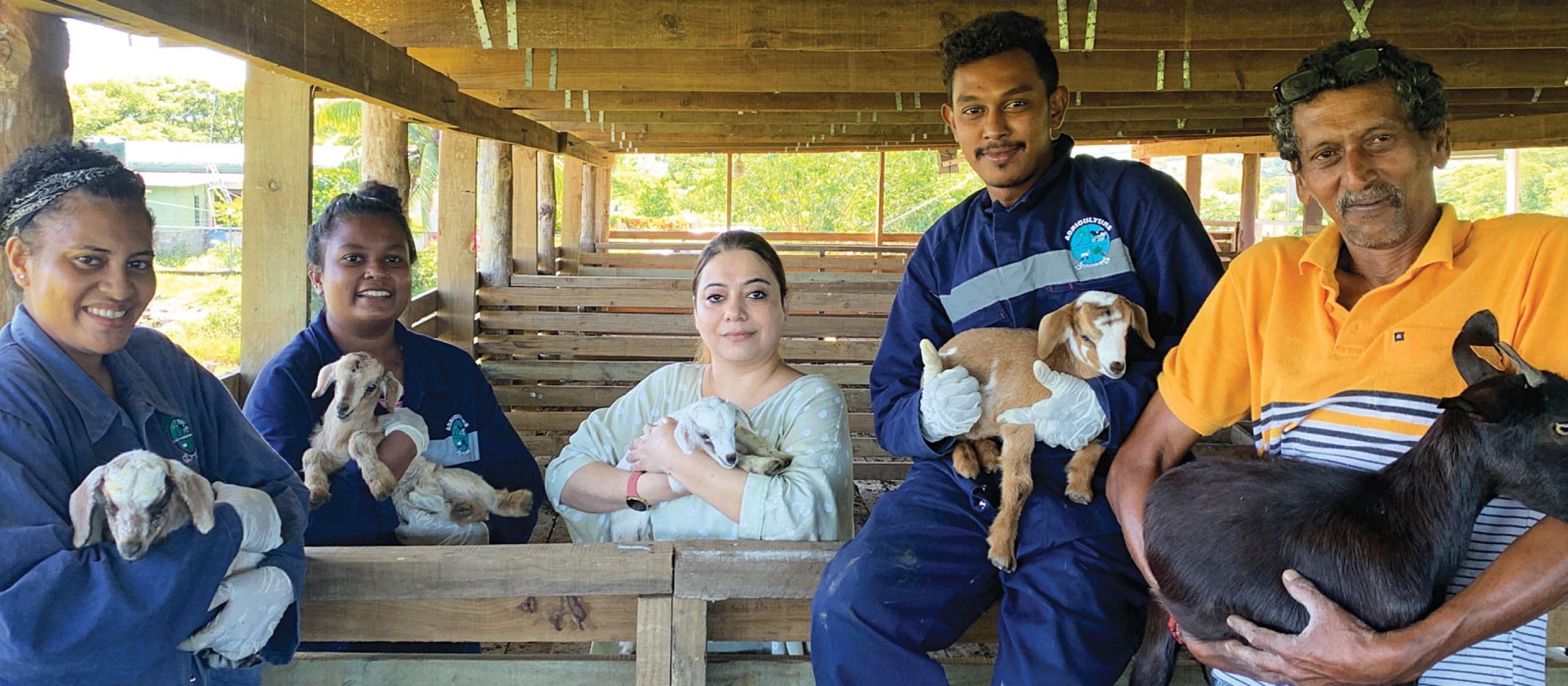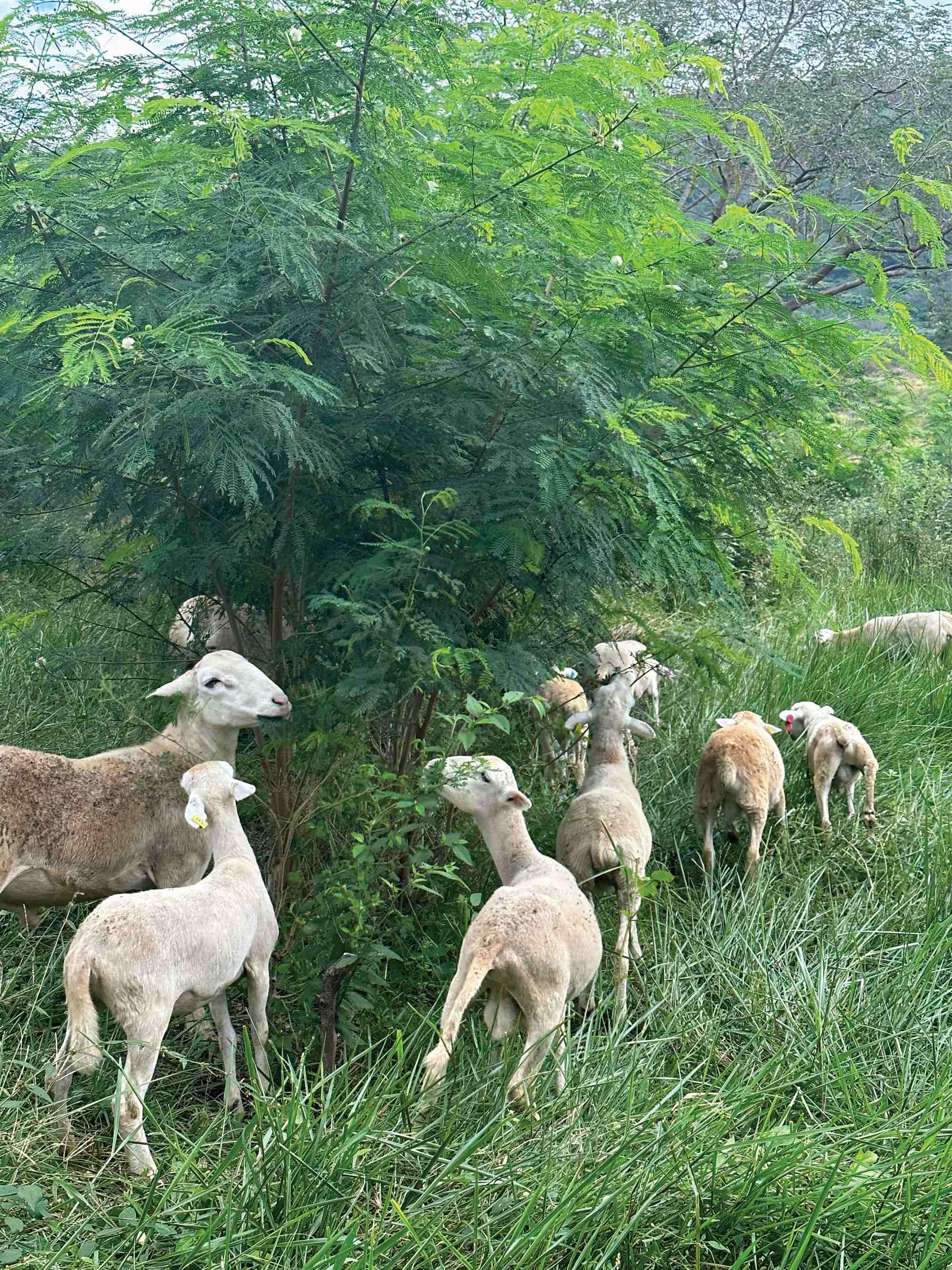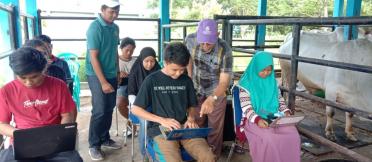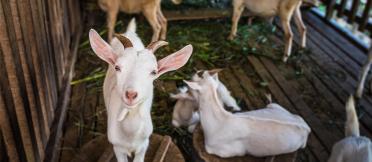Research into the level of internal parasites in animals and potential drench-resistance in Fiji has been a key part of the project, responding to concerns raised in a previous ACIAR-supported project that identified a high worm burden in both sheep and goats.
Dr Silva said trials with commercial farms showed the problem was not as severe as feared. However, sampling of farms across the country shows a high incidence of worms, suggesting a discrepancy between actual and reported drenching practices.
Drenching is also integrated into the smallholder research activity, which aims to quantify any production losses caused by worms in sheep and goat farms. Mrs Alice Baleiverata is a field officer for the project in the western region of Fiji and said the farmers she works with have been impressed with the effects of drenches trialled with pregnant does.
‘The farmers have noticed that the babies are stronger at birth, and their growth rates are really fast. They’ve seen an improvement in weight gain for the kids and the mothers,’ said Mrs Baleiverata.
Supported by results similar to these, cost-of-production assessments for smallholders are helping to identify the benefits in growth and return from sales that justify the expense and effort of regular drenching and monitoring of worms.
Government staff are key to project implementation, which includes training for staff at the Ministry of Agriculture and Waterways in Fiji and the Ministry of Agriculture and Fisheries in Samoa to strengthen in-country livestock extension services.
Both countries have government livestock breeding and research centres that are supporting the project with drench, feeding and pasture trials.
ACIAR Research Program Manager, Livestock, Dr Anna Okello said improved productivity will help build domestic supply in Fiji and Samoa. There is also a potential opportunity for supplying premium agritourism markets with national – rather than imported – products, particularly with the continued investment in infrastructure such as transport and abattoirs.
Dr Okello highlighted this project as part of the growing ACIAR investment into small ruminants.
‘Small ruminants are often overlooked in research, particularly when compared to that of the cattle industry, although sheep and goats are crucial to the food security and income for some of the world’s most vulnerable people,’ said Dr Okello. ‘They provide livelihoods for women, in particular, and for landless people, who can often use unimproved pastures and urban areas to graze their animals.’
The 5-year project in Fiji and Samoa is expected to conclude in June 2024, while a 3.5-year project on goat production in the Sindh and Punjab regions of Pakistan ended last year. Another 5-year project looking at goat production in Laos and Vietnam will end later this year.
Dr Okello said all of these projects are providing valuable data that will support further development of the small ruminant sectors in ACIAR partner countries. To improve productivity and incomes, benchmarking animal health, feeding strategies, regular weighing of animals and record-keeping are common elements in the projects.







